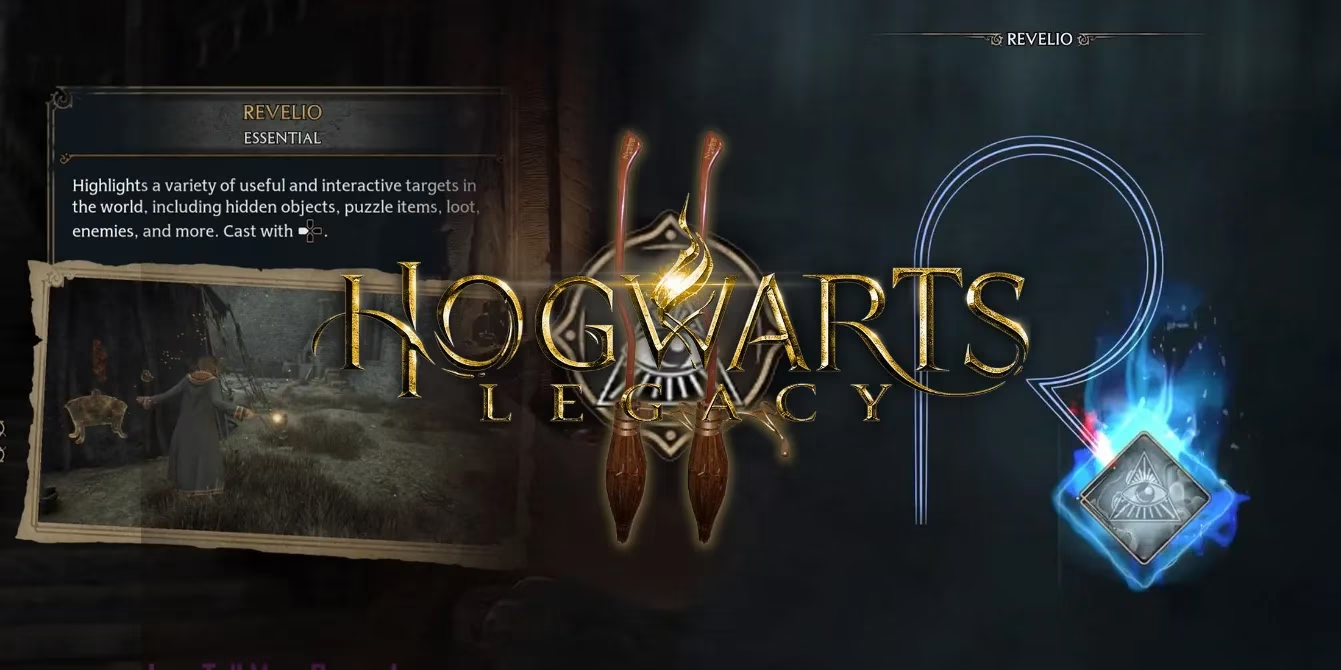Hogwarts Legacy stormed onto the scene as a roaring success for Warner Bros., becoming the best-selling game of its year, even outshining giants like The Legend of Zelda: Tears of the Kingdom. With such undeniable profitability and impact, the sequel, Hogwarts Legacy 2, isn't just a possibility—it's an inevitability. But let's not kid ourselves, the first game wasn't flawless. Sure, it enchanted players with its magical world, but the exploration often felt like a repetitive slog, centered too heavily around the Revelio spell. That little incantation became the go-to crutch for finding treasures, puzzles, and quest items, turning what should have been an immersive adventure into a button-mashing routine. As 2025 unfolds, the buzz is all about how Avalanche Software will tackle this in the sequel, because honestly, Revelio needs a serious rethink to keep the magic alive.

The Revelio spell in action—a familiar sight that might need a makeover for Hogwarts Legacy 2.
Now, let's dive into why Revelio became such a double-edged sword. On one hand, it's super convenient—tap a button, and bam! Everything lights up like a Christmas tree, revealing all the goodies hidden in the environment. This mechanic isn't new; it borrows heavily from detective vision in Batman: Arkham or eagle eye in Assassin's Creed. For busy gamers juggling 50-100 hours of gameplay, it's a lifesaver, especially when loot and collectibles are essential for progression. But here's the rub: over-reliance on Revelio made exploration feel like a guided tour rather than a discovery. The world of Hogwarts is supposed to whisper secrets to you, but Revelio just shouts them out loud, robbing players of that 'aha!' moment. Think about it: in The Witcher 3, similar systems add flavor without dominating, but in Hogwarts Legacy, it often led to bland, on-rails experiences. Gameplay became predictable, and let's be real, pressing that button got old real quick—it’s like having a nagging friend who always points out the obvious.
Comparing Hogwarts Legacy to other open-world giants highlights the issue. Take The Legend of Zelda: Breath of the Wild—it doesn’t spoon-feed you with a highlight reel. Instead, players have to actually look around, notice patterns, and think critically. That's where the real immersion kicks in, making every find feel earned. Hogwarts Legacy, in contrast, often feels like it's holding your hand too tightly. But not every game can be Breath of the Wild, right? Still, Avalanche could steal a page from its book for the sequel. Imagine if Revelio wasn't the star of the show but more of a backup dancer—reserved for tricky spots or specific missions, rather than being on constant standby. That way, level design could take the lead, encouraging players to use their brains and senses to uncover secrets. For instance, environmental clues or subtle hints in the castle's architecture could guide exploration, turning it into a puzzle itself. This shift would make the world feel more alive and less like a checklist.
| Game | Exploration Approach | Pros | Cons |
|---|---|---|---|
| Hogwarts Legacy | Revelio-centric | Easy to use, saves time | Repetitive, reduces immersion |
| Breath of the Wild | Player-driven | Highly immersive, encourages creativity | Can be challenging for casual players |
| The Witcher 3 | Hybrid system | Balanced, adds depth | Sometimes overwhelming |
Key areas for improvement in Hogwarts Legacy 2’s exploration:
-
Reduce Revelio dependence: Make it an optional aid, not a crutch.
-
Enhance environmental storytelling: Use visual cues and lore to guide players organically. 🧙♂️
-
Introduce dynamic puzzles: Like shifting staircases that require observation, not just spell-casting.
-
Add risk-reward elements: Such as hidden areas that demand stealth or clever spell combinations.
But hold on—what if Avalanche overhauls it entirely? That could backfire. After all, Revelio has its charms; it’s a no-brainer for quick loot runs. The trick is finding balance. Maybe the sequel could tie Revelio to character progression, unlocking it later or limiting its use to avoid burnout. That way, the game world breathes a bit more, letting players stumble upon surprises without constant nudges. It’s a fine line, though. Too much change, and fans might revolt; too little, and the gameplay stays stale. As 2025 rolls on, the anticipation builds—how will players react if Hogwarts Legacy 2 embraces a wilder, more untamed exploration style? What secrets will they uncover when the world isn't always lit up for them?